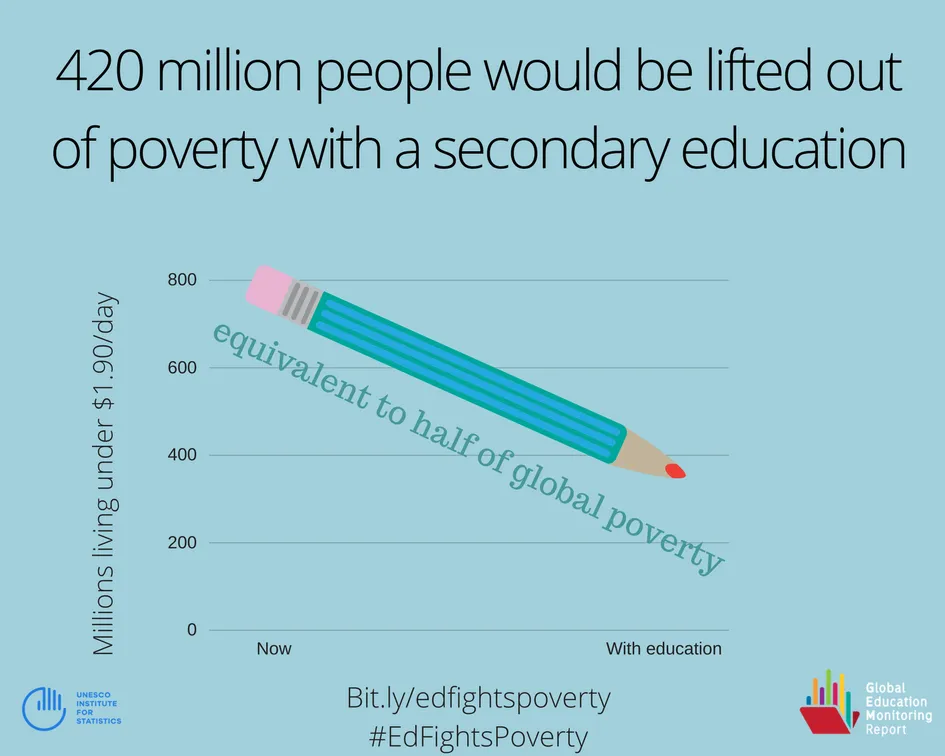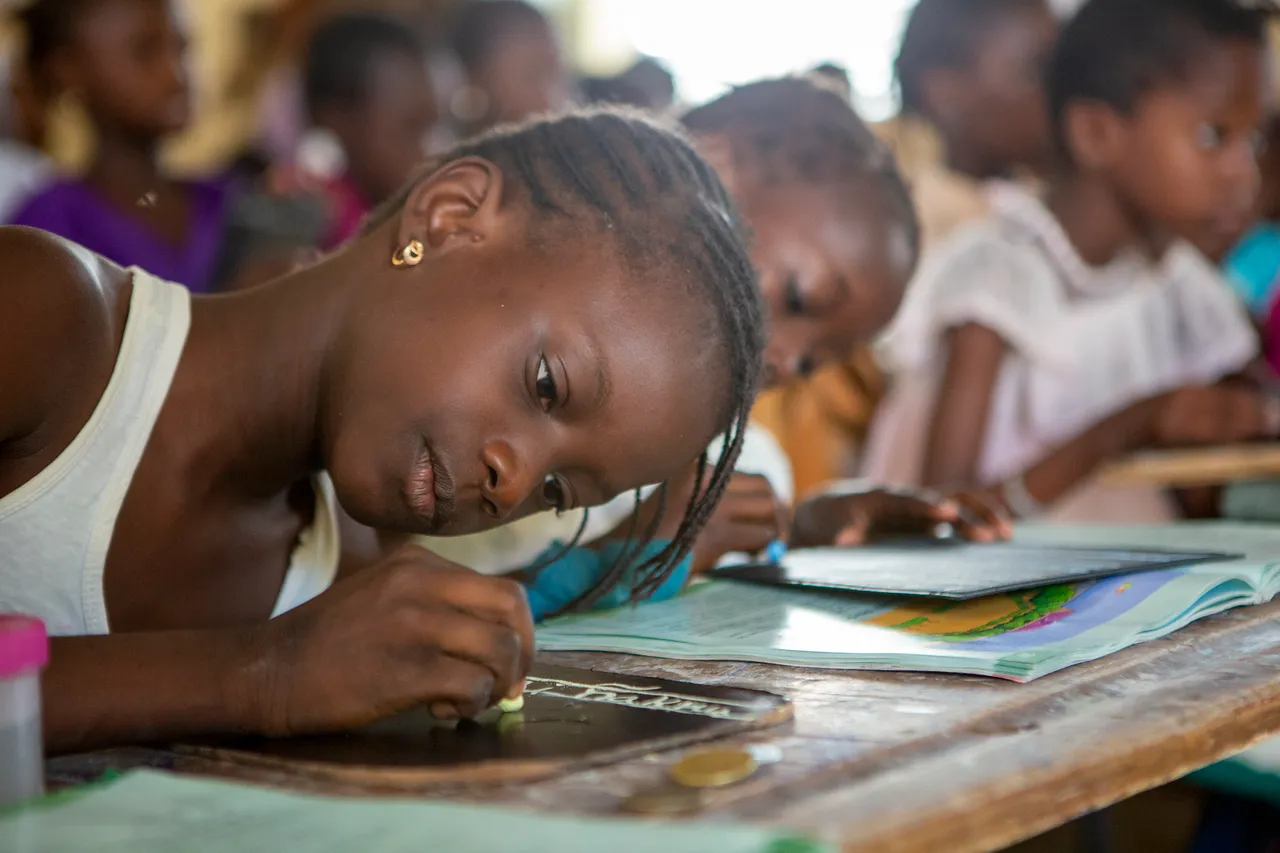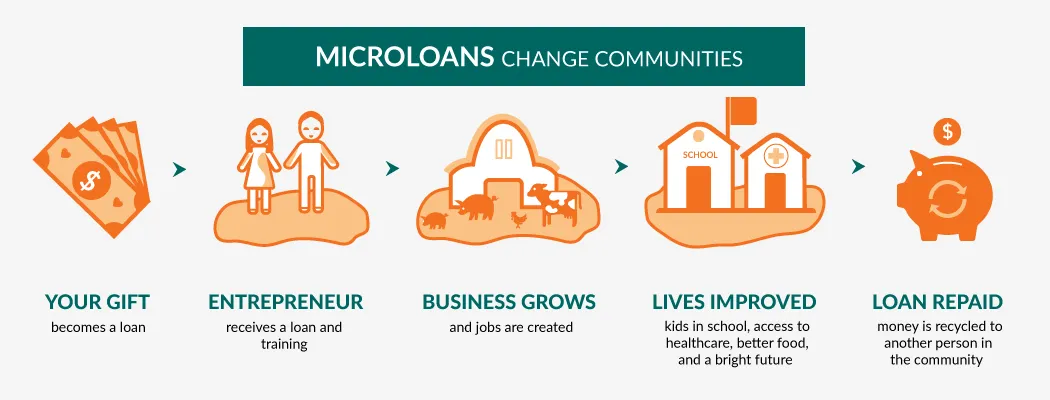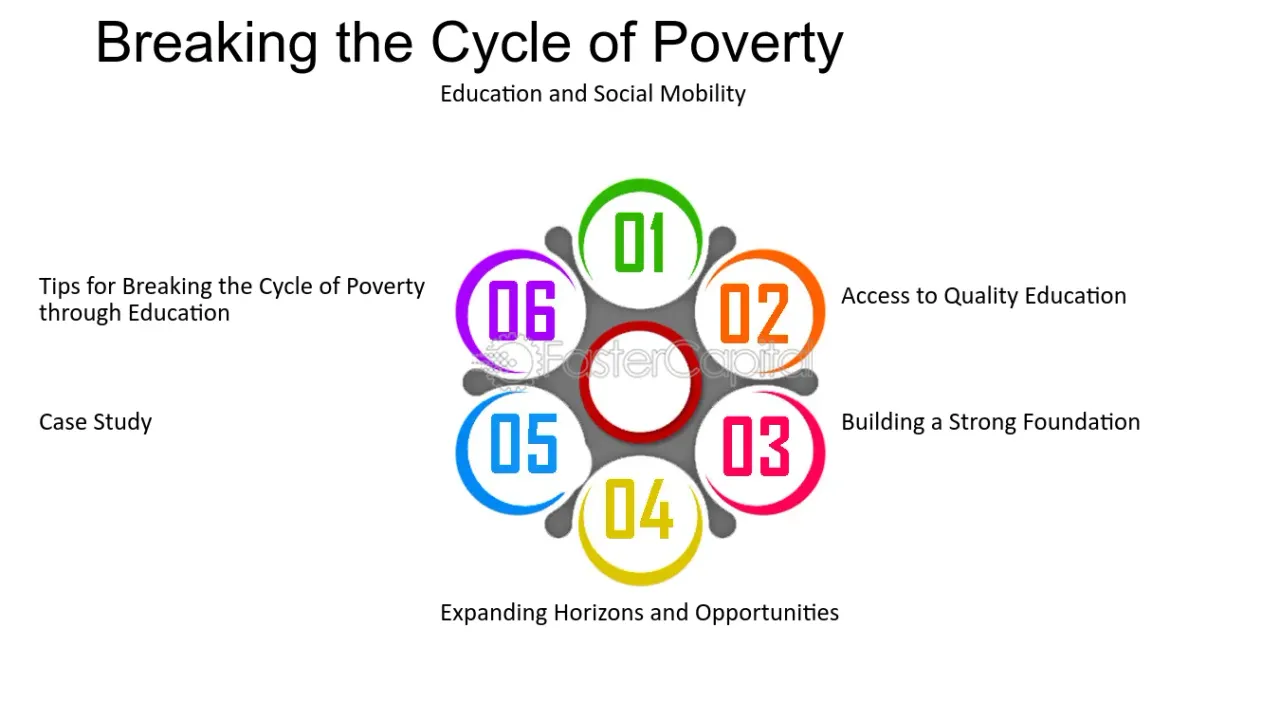
In a world where nearly 700 million people still live in extreme poverty, the relationship between education and economic empowerment has never been more critical. Traditional approaches to poverty reduction, while well-intentioned, often fall short of creating sustainable pathways to economic independence. Enter EducDAO, a revolutionary decentralized university that is pioneering innovative solutions to break the persistent cycle of poverty through accessible education and integrated economic empowerment systems.
EducDAO's approach represents a fundamental shift from conventional educational models, combining blockchain technology, artificial intelligence, and universal basic income through its partnership with Freeos to create unprecedented opportunities for economic mobility. By addressing both the educational and economic barriers that perpetuate poverty, EducDAO is charting new pathways that could transform millions of lives worldwide.
Understanding the Poverty-Education Nexus
The Devastating Reality of Educational Poverty
The statistics surrounding global educational poverty paint a sobering picture of missed opportunities and systemic failures. According to the World Bank, over 250 million children are currently out of school, while seven in ten children in low- and middle-income countries cannot read or understand a simple paragraph by age 10. In sub-Saharan Africa, this figure rises to nine in ten children, creating a massive educational crisis that perpetuates cycles of poverty across generations.
The economic implications of this educational crisis are staggering. The COVID-19 pandemic has exacerbated these challenges, with the current generation of children potentially losing a combined total of $21 trillion in lifetime earnings—equivalent to 17% of today's global GDP. This represents not just individual tragedy but a collective loss of human potential that undermines global economic development and social progress.

The Transformative Power of Education
Research consistently demonstrates that education is one of the most powerful tools for breaking cycles of poverty. The World Bank reports that globally, there is a 10% increase in hourly earnings for every extra year of schooling. More dramatically, UNESCO research shows that if all adults completed secondary education, 420 million people could be lifted out of poverty, reducing the global poverty rate by more than half.
Education serves as a foundational infrastructure for job creation, and good jobs represent the surest pathway out of poverty. Beyond individual benefits, education drives long-term economic growth, spurs innovation, strengthens institutions, and fosters social cohesion. It delivers large, consistent returns in terms of income and serves as the most important factor in ensuring equity and inclusion across societies.
However, traditional educational systems face significant barriers that prevent them from reaching those who need them most. Geographic limitations, financial constraints, cultural barriers, and institutional gatekeeping often exclude the very populations that would benefit most from educational opportunities. This is where EducDAO's innovative approach becomes transformative.
EducDAO: Revolutionizing Access to Education
A New Paradigm for Educational Delivery
EducDAO represents a fundamental reimagining of higher education through decentralization and democratization. Unlike traditional universities constrained by physical campuses, admission requirements, and geographic boundaries, EducDAO operates as a decentralized autonomous organization (DAO) that leverages blockchain technology and artificial intelligence to create truly accessible educational opportunities.
The university's remarkable growth from 13 initial members to over 222,000 students in just five years demonstrates the tremendous demand for alternative educational models that prioritize accessibility and inclusion. This exponential growth reflects not just the platform's innovative approach but also the urgent need for educational solutions that can reach underserved populations worldwide.
Core Principles Addressing Poverty
Universal Access Without Traditional Barriers: EducDAO eliminates many of the traditional barriers that prevent people in poverty from accessing quality education. There are no expensive application fees, standardized test requirements, or geographic restrictions. Students from rural areas, conflict zones, or economically disadvantaged backgrounds can participate equally with those from more privileged circumstances.
Collaborative Learning in Diverse Communities: The platform emphasizes collaborative learning in small groups of 6-8 students from different cultural and economic backgrounds. This approach not only enhances learning outcomes but also builds cross-cultural understanding and professional networks that can be crucial for economic advancement.
Skills-Focused Curriculum: EducDAO's curriculum focuses on emerging technologies including blockchain, artificial intelligence, and decentralized systems—fields that offer significant opportunities for economic advancement and are less constrained by traditional credentialing barriers.
Democratic Governance: The DAO structure ensures that all participants have equal voice in governance decisions, creating a truly democratic educational environment where students from all backgrounds can influence the direction and policies of their institution.
Breaking Down Geographic and Economic Barriers
One of EducDAO's most significant contributions to poverty reduction is its ability to transcend geographic and economic limitations. Students in remote rural areas, conflict zones, or regions with limited educational infrastructure can access the same quality education as those in major metropolitan centers. This geographic democratization is particularly important for breaking cycles of poverty that are often concentrated in specific regions or communities.
The platform's digital-first approach also significantly reduces the costs associated with traditional higher education. Students don't need to relocate, pay for campus housing, or invest in expensive textbooks and materials. This cost reduction makes quality education accessible to families and individuals who would otherwise be excluded from higher education opportunities.
The Freeos Integration: Economic Empowerment Through Universal Basic Income

Understanding the Freeos System
Perhaps the most innovative aspect of EducDAO's approach to breaking poverty cycles is its integration with Freeos, a decentralized economic system that provides universal basic income (UBI) to participants. Freeos (which rhymes with "free us") operates on democratic principles where every participant has equal voting rights in monetary policy decisions, embodying the same democratic values that drive EducDAO's educational approach.
All EducDAO students can receive Freeos basic income, creating a powerful combination of educational opportunity and economic support that addresses both the immediate and long-term aspects of poverty. This integration represents a holistic approach to human development that recognizes education and economic security as interconnected rather than separate challenges.
The Economic Security Foundation for Learning
The provision of basic income through Freeos addresses one of the most significant barriers to educational success: economic anxiety and the pressure to prioritize immediate income over long-term educational investment. Research consistently shows that financial stress impairs cognitive function and decision-making, making it difficult for individuals in poverty to focus on educational goals that may not provide immediate economic returns.
By providing a consistent financial safety net, the Freeos UBI enables EducDAO students to make educational choices less constrained by immediate financial need. This economic security creates an environment where students can invest more earnestly in their education, fostering conditions ripe for scholastic excellence and long-term career development.
Transforming Educational Paradigms
The combination of accessible education and basic income support signals the emergence of novel educational paradigms where choices about what, when, and how to study are liberated from fiscal pressures. Students can pursue fields of study based on their interests, aptitudes, and long-term career goals rather than being forced into immediate income-generating activities that may not align with their potential or aspirations.
This paradigm shift is particularly important for breaking intergenerational cycles of poverty. When young people can pursue education without the immediate pressure to contribute to family income, they can develop skills and knowledge that position them for higher-paying careers, ultimately benefiting not just themselves but their families and communities.
Addressing Systemic Barriers to Economic Mobility
The Traditional Education-Employment Gap
Traditional educational systems often fail to bridge the gap between academic learning and practical employment skills, particularly for students from disadvantaged backgrounds who may lack professional networks and mentorship opportunities. EducDAO addresses this challenge through its focus on emerging technologies and collaborative learning environments that naturally build professional relationships and practical skills.
The platform's emphasis on blockchain, AI, and decentralized technologies positions students at the forefront of rapidly growing industries where traditional credentialing barriers are less established. This creates opportunities for students to demonstrate competency and build careers based on skills and knowledge rather than traditional credentials or social connections.
Building Global Professional Networks
EducDAO's global reach creates unprecedented opportunities for students from economically disadvantaged backgrounds to build international professional networks. Through collaborative projects and cross-cultural learning experiences, students develop relationships that can lead to career opportunities, business partnerships, and ongoing professional development.
These networks are particularly valuable for students from regions with limited local economic opportunities. The global nature of EducDAO's community means that students can access opportunities and markets that would otherwise be completely unavailable to them, effectively expanding their economic horizons beyond their immediate geographic constraints.

Real-World Impact and Success Stories
Measurable Outcomes in Poverty Reduction
While EducDAO is still a relatively young institution, its rapid growth and the testimonials from its diverse student body suggest significant impact in creating pathways out of poverty. The platform's ability to attract and retain over 222,000 students from diverse economic backgrounds demonstrates that it is successfully reaching populations that traditional higher education often fails to serve.
The integration with Freeos provides measurable economic benefits to students, with the basic income providing immediate poverty relief while education provides long-term economic empowerment. This dual approach addresses both the urgent needs of people in poverty and the systemic changes necessary for sustainable economic mobility.
Skills Development for the Digital Economy
EducDAO's focus on emerging technologies prepares students for the digital economy, where many of the highest-growth, highest-value opportunities exist. For students from economically disadvantaged backgrounds, this represents an opportunity to leapfrog traditional career progression paths and enter high-value fields directly.
The collaborative learning model also develops crucial soft skills including cross-cultural communication, remote collaboration, project management, and digital literacy. These skills are increasingly valuable in the global economy and can provide competitive advantages for students who might otherwise lack access to such development opportunities.
Community Building and Mutual Support
The EducDAO community provides ongoing support and networking opportunities that extend far beyond formal education. Students report developing strong professional networks and mentorship relationships that support their career development and entrepreneurial ventures. This community aspect is particularly important for students from backgrounds where such support networks are traditionally unavailable.
The global nature of the community also provides exposure to diverse perspectives and opportunities that can be transformative for students from isolated or economically constrained environments. This exposure can inspire entrepreneurship, innovation, and career paths that students might never have considered within their local contexts.
Addressing Challenges and Limitations
Digital Divide and Access Issues
While EducDAO's digital-first approach offers many advantages for accessibility and cost reduction, it also requires reliable internet access and basic digital literacy. In regions where poverty is most concentrated, these technological requirements can create barriers to participation.
However, the platform has addressed some of these challenges by providing educational resources and support for digital literacy development. The community-driven nature of the platform also enables peer-to-peer support and mentorship in developing technical skills. Additionally, the economic support provided through Freeos can help students invest in the technology and connectivity needed for participation.
Cultural and Social Barriers
Despite its innovative approach, EducDAO cannot completely eliminate cultural and social barriers that may limit educational participation in some contexts. Family expectations, gender roles, and community attitudes toward education can still create obstacles for some potential students.
The platform's flexibility and remote nature can help students navigate some of these challenges by allowing discrete participation and gradual demonstration of educational value to skeptical family or community members. The economic benefits provided through Freeos can also help demonstrate the practical value of educational participation.
Recognition and Credentialing
As a relatively new educational model, EducDAO faces challenges in gaining recognition from traditional employers and institutions. This recognition gap could potentially limit the immediate career benefits for graduates, particularly in conservative industries or regions.
The platform addresses this challenge through blockchain-based credentialing that provides verifiable proof of skills and knowledge. As the digital economy grows and employers become more familiar with alternative credentialing, these barriers are likely to diminish. The focus on emerging technologies also positions graduates in fields where traditional credentialing is less established and skills-based hiring is more common.
The Broader Economic and Social Impact
Multiplier Effects of Educational Investment
The economic benefits of EducDAO's approach extend far beyond individual students to their families and communities. Research consistently shows that education has significant multiplier effects, with educated individuals contributing to economic growth, innovation, and social development in their communities.
When EducDAO students develop skills in emerging technologies and gain access to global economic opportunities, they often become catalysts for broader economic development in their home communities. This can include starting businesses, creating employment opportunities, and transferring knowledge and skills to others.
Innovation and Entrepreneurship
The combination of technological education and economic security provided by EducDAO and Freeos creates ideal conditions for innovation and entrepreneurship. Students who are not constrained by immediate economic pressures can take risks, experiment with new ideas, and develop innovative solutions to local and global challenges.
The global nature of the EducDAO community also facilitates the sharing of ideas and collaboration on innovative projects across cultural and geographic boundaries. This cross-pollination of ideas can lead to breakthrough innovations that address poverty and other global challenges.
Sustainable Development Goals Alignment
EducDAO's approach aligns closely with multiple United Nations Sustainable Development Goals (SDGs), particularly SDG 1 (No Poverty), SDG 4 (Quality Education), SDG 8 (Decent Work and Economic Growth), and SDG 10 (Reduced Inequalities). By addressing education and economic empowerment simultaneously, the platform contributes to a comprehensive approach to sustainable development.
The platform's emphasis on emerging technologies also positions it to contribute to other SDGs including climate action, sustainable cities, and responsible consumption and production. Students educated in these technologies can develop solutions that address multiple global challenges simultaneously.
Future Directions and Scaling Potential
Expanding Access and Impact
As EducDAO continues to grow, maintaining its commitment to accessibility and poverty reduction will be crucial. The platform's decentralized governance model provides mechanisms for ensuring that growth doesn't compromise its foundational principles of inclusion and economic empowerment.
Future developments might include specialized programs addressing specific challenges faced by different populations or regions. The platform's flexibility allows for rapid adaptation and innovation in response to emerging needs and opportunities.
Integration with Traditional Systems
As EducDAO gains recognition and credibility, opportunities for integration with traditional educational and economic systems may emerge. These integrations could help bridge the gap between innovative educational models and established career pathways, making the benefits of EducDAO's approach more widely accessible.
Partnerships with employers, governments, and other educational institutions could help ensure that EducDAO graduates have clear pathways to career advancement and economic participation. Such partnerships could also help traditional institutions learn from EducDAO's innovative approaches to accessibility and inclusion.
Technology Evolution and Enhancement
Continued advancement in blockchain, AI, and other technologies will likely enhance EducDAO's capabilities and impact. Improvements in user experience, accessibility, and functionality could further reduce barriers to participation and increase the platform's effectiveness in breaking poverty cycles.
Emerging technologies like virtual and augmented reality could enhance the collaborative learning experience and provide new opportunities for hands-on skill development. These technological advances could make EducDAO's educational offerings even more competitive with traditional institutions while maintaining their accessibility advantages.
Policy Implications and Recommendations
Supporting Innovative Educational Models
EducDAO's success demonstrates the potential for innovative educational models to address persistent challenges in poverty reduction and economic development. Policymakers should consider how to support and scale such innovations while ensuring quality and accountability.
This might include developing new frameworks for recognizing alternative credentials, providing infrastructure support for digital education initiatives, and creating regulatory environments that encourage innovation while protecting students and communities.
Universal Basic Income and Education Policy
The integration of UBI with education in the EducDAO-Freeos model provides valuable insights for policymakers considering UBI programs. The combination suggests that UBI may be most effective when paired with opportunities for skill development and economic advancement rather than provided in isolation.
Policymakers might consider pilot programs that combine basic income support with educational opportunities, particularly for populations facing multiple barriers to economic mobility. Such programs could provide both immediate poverty relief and long-term pathways to economic independence.
Digital Infrastructure and Inclusion
EducDAO's success also highlights the importance of digital infrastructure and inclusion in modern poverty reduction strategies. Policymakers should prioritize investments in broadband access, digital literacy programs, and technology access initiatives that enable participation in digital education and economic opportunities.
These investments are particularly important in rural and economically disadvantaged areas where traditional educational and economic opportunities may be limited but digital participation could provide transformative opportunities.
Conclusion: A New Model for Economic Empowerment
EducDAO's innovative approach to breaking poverty cycles through integrated education and economic empowerment represents a significant advancement in our understanding of how to create sustainable pathways out of poverty. By combining accessible, high-quality education with economic security through universal basic income, the platform addresses both the immediate and long-term aspects of poverty in ways that traditional approaches have struggled to achieve.
The platform's success in growing from 13 members to over 222,000 students demonstrates the tremendous demand for educational models that prioritize accessibility, inclusion, and economic empowerment. More importantly, it shows that such models can be successfully implemented at scale using emerging technologies and innovative organizational structures.
The integration with Freeos UBI is particularly significant, as it addresses one of the most fundamental barriers to educational success: economic insecurity. By providing students with basic income support, EducDAO enables them to focus on long-term educational and career goals rather than being forced into immediate income-generating activities that may perpetuate cycles of poverty.
Perhaps most importantly, EducDAO's model demonstrates that breaking cycles of poverty requires more than just access to education or economic support alone. It requires a holistic approach that addresses the interconnected nature of educational, economic, and social barriers that keep people trapped in poverty.
The platform's emphasis on emerging technologies, global collaboration, and democratic governance also positions it to contribute to broader goals of sustainable development and social justice. By preparing students for the digital economy while building global networks and fostering innovation, EducDAO creates conditions for transformative change that extends far beyond individual economic mobility.
As we look toward the future, EducDAO's model offers valuable lessons for creating more effective approaches to poverty reduction and economic development. The platform's success suggests that innovative combinations of technology, education, and economic empowerment can create powerful pathways out of poverty that are both scalable and sustainable.
For the millions of people worldwide who remain trapped in cycles of poverty, EducDAO represents more than just an educational opportunity—it represents hope for a fundamentally different future. By charting new pathways to economic independence through accessible education and integrated economic support, EducDAO is not just breaking individual cycles of poverty but pioneering approaches that could transform how we think about education, economic empowerment, and social justice in the 21st century.
The revolution in poverty reduction may not come from traditional institutions or conventional approaches, but from innovative platforms like EducDAO that recognize the interconnected nature of educational and economic challenges and develop comprehensive solutions that address both simultaneously. In doing so, they offer genuine hope for breaking the persistent cycles of poverty that have constrained human potential for far too long.
This article explores how EducDAO's innovative integration of decentralized education and universal basic income through Freeos creates unprecedented opportunities for breaking cycles of poverty and achieving sustainable economic independence. Through its democratic, accessible, and economically empowering approach, EducDAO demonstrates how emerging technologies can be leveraged to address some of humanity's most persistent challenges.
More about EducDAO at https://educdao.live
More about Freeos at https://freeos.io
Written with Manus.im